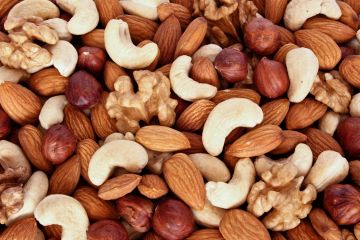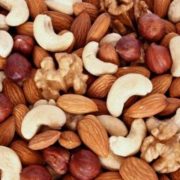Why And How To Do A Detox Diet
When you think “detox,” you probably imagine a challenge of some sort wherein you have to fast for days and drink only water or green juices. That would probably be a detox, but it’s not an approach that might be right for you. A detox diet’s aim is to eliminate harmful toxins from the body. However, what exactly are these toxins and how do these different approaches achieve them?
Detox diets are sometimes considered “crash diets” since they’re short-term dietary changes designed get rid of toxins. Most detox diets involve fasting to “rest the organs” and to “stimulate the liver to rid the body of toxins.” After the fasting period comes a strict diet of fruits, vegetables and water. The body is supposed to excrete the toxins through urine, faeces and sweat. It’s essentially a way to “reset” the body from exposure to toxic chemicals from the environment and through one’s diet. These toxins include pollutants, synthetic chemicals, heavy metals and other “harmful” compounds.
 Do detox diets work? Studies on detox diets have so far been limited and there’s no solid evidence to back up detox diets’ claims. Some people report that they feel more energetic and focused after their detox, while others report feeling unwell. The positive effects of a detox may be attributed to the elimination of alcohol, processed foods and other unhealthy substances. And, if you weren’t a fruits and veggies person to begin with, you probably were getting nutrients you typically miss out on.
Do detox diets work? Studies on detox diets have so far been limited and there’s no solid evidence to back up detox diets’ claims. Some people report that they feel more energetic and focused after their detox, while others report feeling unwell. The positive effects of a detox may be attributed to the elimination of alcohol, processed foods and other unhealthy substances. And, if you weren’t a fruits and veggies person to begin with, you probably were getting nutrients you typically miss out on.
The body, detox diet or not, is very much capable of cleansing itself of harmful toxins through everyday natural processes with the liver, faeces, urine and sweat. However, there are some substances that take longer to eliminate, such as organic pollutants, which accumulate in fat tissue or the blood.
Another reason for going on a detox diet is quick weight loss. What the body loses during detox diets may be fluid and carb stores, rather than fat. This explains why once you resume normal eating, you quickly regain the weight lost.
If you want to go on a detox diet that’s not all about calorie restriction, there is a way to do just that. What you can aim for is clean eating and not necessarily sticking to “right” and “wrong” eating, the latter being an unhealthy approach. Be sensible about your detox and consider it as a step forward to healthy habits.
Schedule your detox diet for seven days and adequately prepare yourself. Plan ahead and thoroughly. You can meal prep, down to snacks and beverages. You may also want to rid your kitchen of sugary, fatty, processed foods that might tempt you. Eat in moderation and focus on balanced meals with foods rich in antioxidants and high in fibre. When preparing meals, make sure there’s a balance of protein, carbs and fats. Go for locally-grown, season produce and keep meals interesting by switching up your veggies and adding oils and spices. Snack on nuts, hummus and dried fruit. Avoid sugar, dairy, wheat, caffeine and alcohol during your detox. Your blood sugar levels and liver will thank you for it.
Sources:
https://www.healthline.com/nutrition/detox-diets-101
https://www.verywellfit.com/the-one-week-detox-diet-88250



